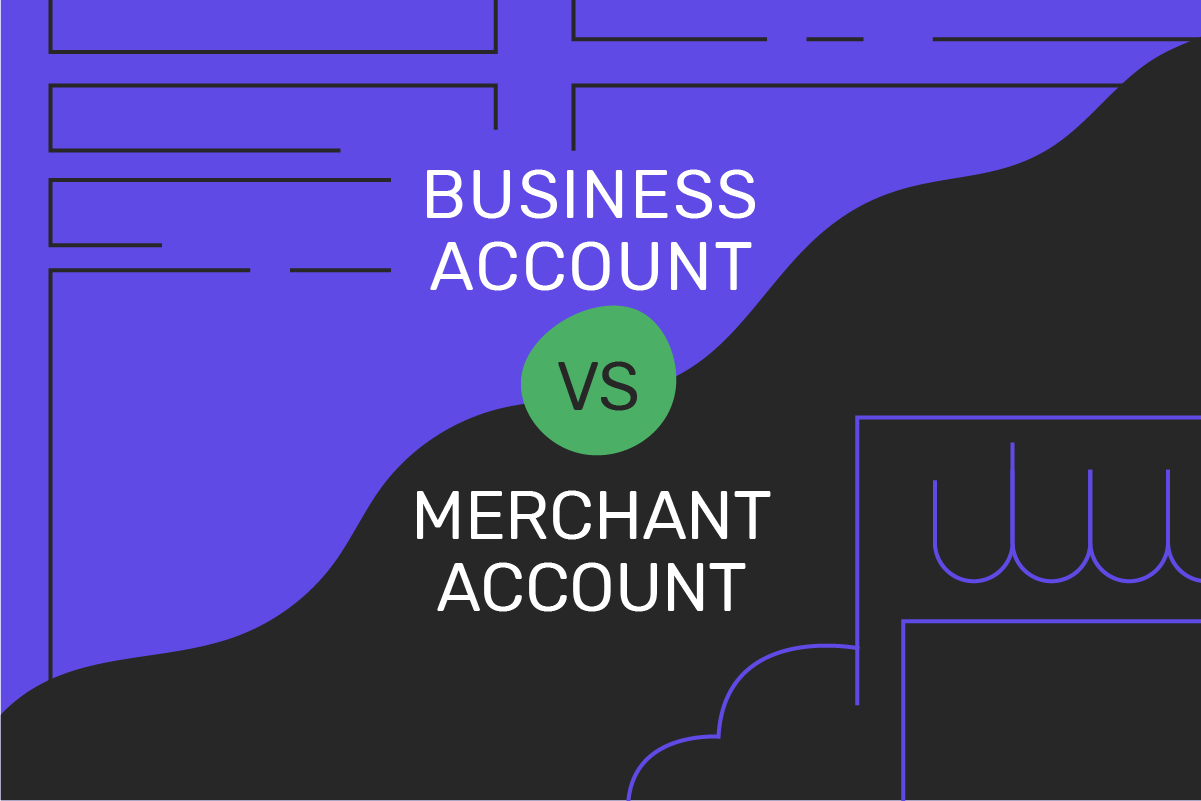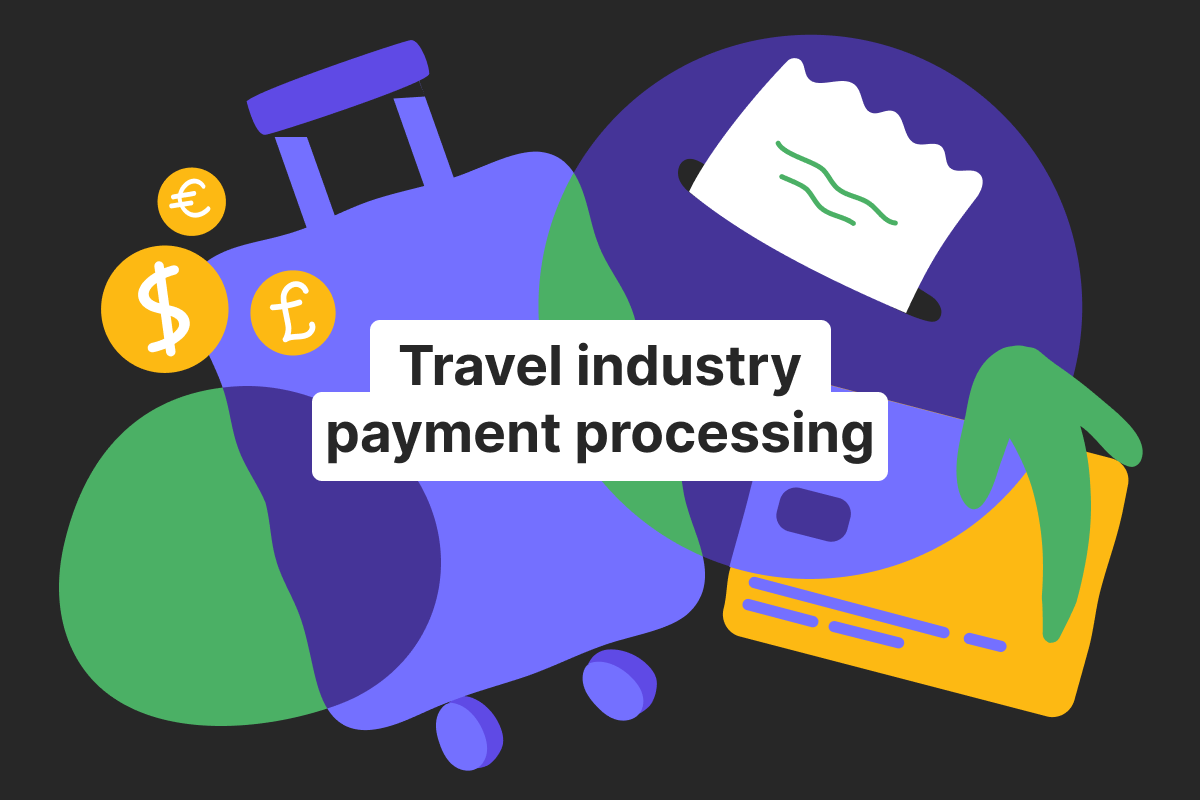Many types of accounts cover pretty much everything that people look for – from a business checking account and brokerage to savings, investment accounts, etc. But what about the basics? That’s right, today we’re talking about business and merchant accounts!
You see, not all clients are sure if they need both of these accounts, and what their purpose is. That’s what we will talk about in this Genome article.
What is a business account?
A business bank account is a bank account that you can use for all business transactions. With it, you can make payments for corporate services, business trips, and vendors, pay your employees, and accept credit and debit cards for goods and services.
Thus, a dedicated merchant account is usually considered a type of business bank account that represents an agreement between a company, its bank, and a payment processor for processing electronic payments.
For any business owner, it’s beneficial to open such an account. Let’s look into how business accounts work in detail. For instance, you own a company/a small local shop/etc. You have the expenses and earnings, bills to pay, and payments to make. Additionally, your business cooperates with other people/companies. These can include your employees, suppliers, tenants, and others. It’s quite logical that your company, even a small one, would benefit greatly from a business bank account.
To put it simply, all transactions and financial operations related to your business activity should be done from or to your business bank account. It helps to separate personal and business finances and, what’s more important, to track your company’s income/spendings more effectively.
It would work perfectly well with any tool, for example, in Genome, we use multi-currency business accounts with SEPA and SWIFT transfers, and companies can send and receive money internationally without managing multiple banking providers.
Last but not least, the existence of a business bank account makes you more reliable and trustworthy in clients’ eyes as a responsible business owner. It means that you are handling your business carefully. Some clients do not feel comfortable with paying for the company’s services to the owner’s personal bank account. In the worst case, they will refuse to use your services to avoid any fraudsters, and thus, you can lose potential customers.
Open an account
in Genome online
What is a merchant account?
A merchant account is a type of bank account that allows companies to accept electronic payment transactions for their goods and services. So, if you are a business that sells things online, you can’t operate without a merchant account – provide your clients with a credit card payment method and its alternatives.
The same applies to physical stores – to allow customers to use payment methods other than cash, a merchant account is required.
The fees you pay for opening and maintaining a merchant account differ among banks and Fintechs. Most commonly, you will have to pay much more if you have a high-risk business with additional flat rate pricing besides monthly and transaction fees.
Being high-risk means that a company either has a short/bad credit card processing history or is a part of an industry that is more prone to chargebacks than other sectors.
Key differences between merchant and business accounts
Now it is time to compare a merchant account vs. business accounts. Frankly speaking, it’s impossible to decide whether a business bank account is better than a merchant account, as these are two distinct services that complement each other. Both have their flaws, but if you want your customers to be able to pay online for your products and services, you need a merchant and business account, for sure.
With the global digitalization facilitated by the COVID-19 lockdowns, people are increasingly preferring to shop and pay online. Plus, purchasing goods and services from different countries all over the world is one of the defining factors in modern global e-commerce. If you do not offer online payment options for your clients, you may lose them. Which is why finding a merchant account provider is important.
Nevertheless, if you, for instance, own a small local store that only accepts cash, you do not really need a merchant account. For the rest of the companies selling things online, you need both a merchant account and a business account.
Business account
The primary benefit of a business bank account is the ability to keep your business and personal finances separate. It includes both revenue and spendings. Furthermore, you can only use funds from your merchant account once they are deposited in your business bank account.
Business loans and any capital raising are also exclusive to business accounts. It is one of the main differences between a merchant account and a business bank account. You will use the latter for business expenses, operational expenses, international payments, and other purposes.
One of the drawbacks is that with some banks or financial providers, opening a business bank account can be a challenging and time-consuming process. Especially if you have many businesses and need a separate merchant account for each one.
Merchant account
This account enables you to accept credit and debit card payments, as well as other online transactions (such as Google/Apple Pay), both online and in-store. It also helps to deposit your income into your business account faster.
Among the disadvantages of the merchant account are setup and monthly fees (these depend on the merchant account provider, which could be just transaction fees). If you have a physical store, you’d also need to purchase a payment terminal, also known as a POS terminal (Point of Service). However, you can find considerably cheaper merchant service providers or use an aggregate merchant account.
Getting a merchant account entails some steps for e-commerce companies. Their website should contain information on the payment methods they offer, clearly established policies, and they must comply with the Payment Card Industry Data Security Standard (PCI DSS) and PSD2 – the Revised Payment Services Directive (the latter is relevant to the EU and the UK merchants). If you are new to this, it will be more beneficial to learn more about starting an e-commerce business and setting up your website.
Genome has recently launched BETA for merchant services and advanced solutions with API integration. It makes it easy for businesses to securely accept online payments via SEPA Instant Transfers and, in the near future, accept credit and debit card payments.
Speaking of traditional merchant accounts, at their core, they are the same, but dedicated to processing electronic payments for a single business. They usually offer lower per-transaction fees and greater stability, but require more rigorous approval and often higher monthly costs. You still can accept online payments from debit cards (basically any card payments) and transfer them to a business bank account.
Nowadays, merchant services providers tend to be more diverse, but such business merchant account types still exist.
Business bank account | Merchant account | |
Purpose | Used for managing company finances: paying suppliers, payroll, taxes, and accepting payments. | Used for processing credit card transactions and debit card transactions in-store, temporarily holding funds before settlement. |
Who needs it | Any registered business that needs to handle business-related transactions. | Businesses that sell products/services and accept card payments (e-commerce, retail, hospitality). |
Settlement times | Funds are available immediately once deposited. | Payments from credit or debit cards are held temporarily before being transferred to the business account. |
Regulatory requirements | Standard banking compliance (KYC, AML, tax reporting). | Additional compliance: PCI DSS, payment processing regulations, fraud monitoring. |
After a small visualization, you can see the difference between a merchant account and a business bank account very clearly. Separating a merchant account from your business account could be a great idea, even for small business owners, to handle credit card and debit card payments.
How do merchant and business accounts work together?
When we speak with entrepreneurs, one of the recurring questions is how merchant accounts work and how business accounts complement each other. At first glance, they may look similar – both are tied to company finances.
The merchant account is the entry point. It is where your customers’ payments land first – whether they’re paying by card, wallet, or bank transfer. Its role is to capture, authorize, and hold those transactions safely.
The business account is the destination. Once transactions are cleared, the funds are transferred directly into your business account. That’s the place where you manage liquidity: pay staff, cover expenses, reinvest in growth.
Together, they form a cycle, and integration between the two ensures speed, compliance, and transparency.
E-commerce is a great example where it works its best:
Customers purchase goods on the website, typically using card payments (credit card sales or debit cards are acceptable, as long as we have a cash flow).
The payment is processed and held in the merchant account while fraud checks are completed. Depending on the provider, sometimes they go directly into a business account.
After settlement, money is transferred to the company’s business account.
The company then uses those funds to:
Pay the supplier.
Cover delivery and logistics costs.
Pay salaries to its customer support team.
Set aside funds for taxes.
In this way, the merchant account makes sure payments are processed and verified, while the business account ensures the money can actually be used to keep the company running and growing.
Do you need both?
If you need to accept payments on your website or in your store through non-cash methods, you are required to have both a business and a merchant account.
In other cases, just use a business bank account for salary payouts and other expenses. But why not use a personal account for that? There are several reasons:
You don’t want to mix your finances with corporate ones. At some point, you risk running short with one of these things;
Another reason you don’t want to mix personal and company money is taxes. Dealing with taxes is already exhausting, so why make the process even more complicated by figuring out which were your business and personal expenses;
If you need the help of lenders and investors, they will examine the way you conduct business, and mixing your finances may not appear reliable.
The payment processor you work with can drop you if they find out you use a personal account for corporate activities.
Check out this article for more information about business accounts.
At Genome, we designed these accounts to work hand in hand. Businesses don’t have to manage separate providers or face delays – your merchant account and business account are connected within one platform.
In the digital economy, efficiency and security are non-negotiable. Combining merchant and business accounts under one roof is how modern financial platforms should work and merchant services should be.
Benefits of choosing Genome for both accounts
Whether you want an account for corporate expenses or a way to accept payments from clients, or even both, Genome has all you need. That’s right, with us, you can open a business account online with a minimum of documents required. We have now launched the BETA for merchant accounts, enabling companies to accept payments from their clients.
Genome’s business account is perfect for running your company’s banking operations online, the way you prefer. It offers instant payouts and international money transfers. Track all your funds and transactions from the office or in the privacy of your home. SEPA transfer, SWIFT, Faster Payments, CHAPS, BACS, and TARGET2 – all included.
Additionally, you can benefit from batch transfers – manage large-scale customer-to-business (C2B) and business-to-customer (B2C) transactions by processing multiple payments at once. Moreover, you can be instantly notified about incoming client payments thanks to our real-time notifications.
As for merchant accounts, we allow businesses to accept payments from clients via SEPA Instant Transfers across Europe. Moreover, card processing will be available soon as well.
Don’t hesitate – start a business wallet inside Genome and apply for a merchant account. Unlock our merchant services to start accepting payments with ease!
Open an account
in Genome online
FAQ
Which merchant account is the best?
There is no such thing as the best merchant account. The best one would be the one that fits your needs. That is why there are the next three types of merchant accounts to choose from:
Aggregate (you’re using a merchant account along with other businesses and pay low fees; it works best for small businesses).
Dedicated or ISO (you’re the only user of this account, and all the features are tailored to your requirements; it has higher fees, so it will be a match for larger companies with stable income).
High-risk (accounts for business owners in high-risk industries).
Can I have a merchant account without a business account?
Technically, yes, but you still need a business bank account to receive and use settled funds. In practice, they work best together.
Are merchant accounts regulated differently from business accounts?
Yes. Merchant accounts follow payment processing rules (PCI DSS, network standards), while business bank accounts are subject to banking regulations (KYC, AML).






